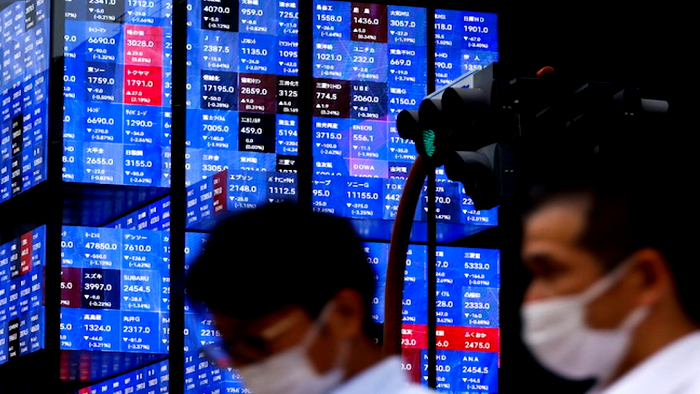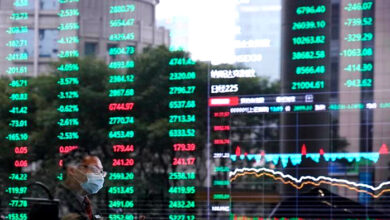Asia’s stocks edge up on hopes that China will open again, but Japan’s Nikkei falls.

Most Asian stocks went up slightly on Thursday, as there was some hope that China’s economy would improve this year. However, Japan’s Nikkei dropped sharply as traders bet on the Bank of Japan taking more “hawkish” steps.
Still, gains in regional stocks were limited by growing fears of a recession in 2023, especially after U.S. data released overnight painted a bleak picture of the world’s largest economy.
The Nikkei 225 index dropped 1.5%, erasing most of the gains made in the previous session. This was due to new rumours that the BOJ will gradually expand the scope of its yield control this year.The index went up 2.5% on Wednesday after the central bank surprised everyone by keeping monetary policy on the same track.
Takatoshi Ito, a professor at Columbia University who is thought to be a candidate to join the BOJ, said on Thursday that inflation that is hotter than expected could force the central bank to widen its benchmark bond yield range by the middle of 2023.
On Friday, Japan will report its consumer price index, which is expected to reach 4%, the highest level in 41 years and twice the BOJ’s annual goal.
Broader Asian stocks got some help from the hope that China’s economy will get better. China’s Shanghai Shenzhen CSI 300 and Shanghai Composite indexes went up by 0.3% and 0.2%, respectively, after Deputy Director of the International Monetary Fund Gita Gopinath told Reuters that China could have a strong economic recovery as early as the second quarter.
Other stocks with ties to China also got some help from the statement. The KOSPI index in South Korea went up by 0.3%, while the ASX 200 index in Australia went up by 0.6%.
Major Australian mining companies BHP Group Ltd (ASX:BHP) and Rio Tinto Ltd (ASX:RIO) both made more iron ore in the December quarter, so their stocks went up sharply. BHP, which is the world’s biggest mining company, also said that a rise in Chinese demand will help keep commodity markets stable.
But worries about a coming recession and a slow start on Wall Street kept regional stocks from going up more.
Overnight, U.S. stock indexes fell sharply after data showed that retail sales and industrial production fell more than expected in December. This made people worry that the world’s largest economy will slow down in the coming months.
Several comments made by Federal Reserve officials overnight also sent mixed signals to the markets. Most officials agreed that interest rates should go up more slowly over the next few months, but they had different ideas about where U.S. interest rates would peak.
Asian tech stocks, which are more sensitive to changes in U.S. rates, were hurt by this uncertainty.
The BSE Sensex 30 and Nifty 50 indexes in India fell by about 0.2% and 0.3%, respectively. Losses in major tech stocks with a lot of exposure to the U.S. market hurt the most.





